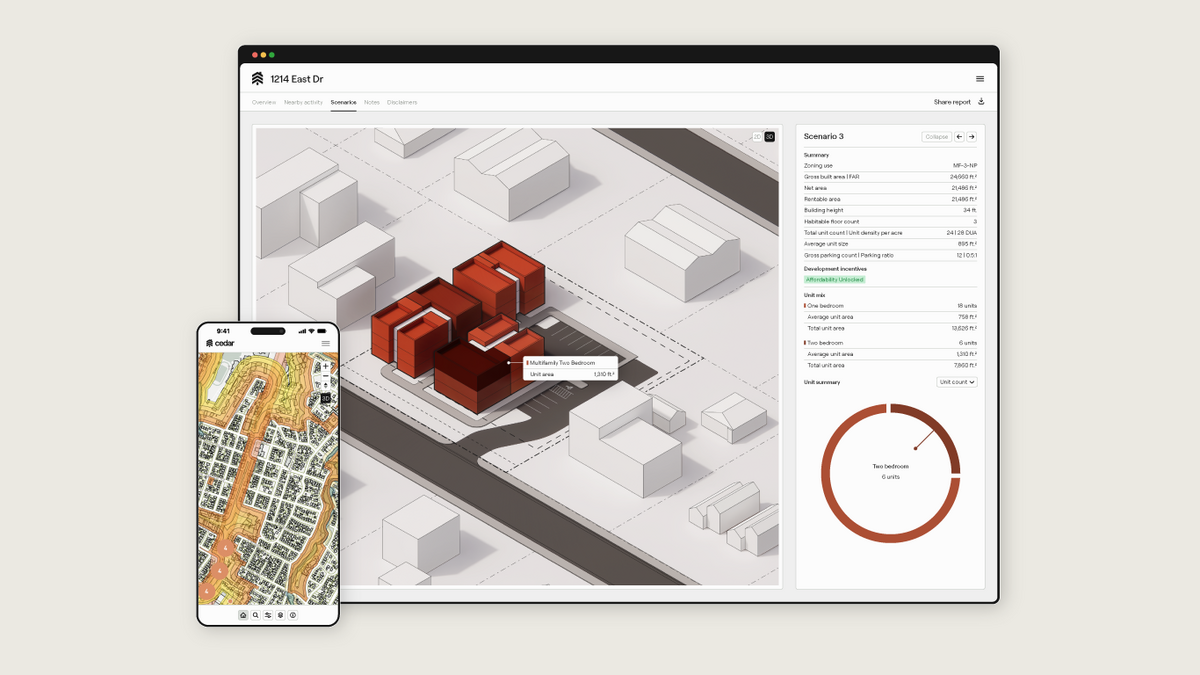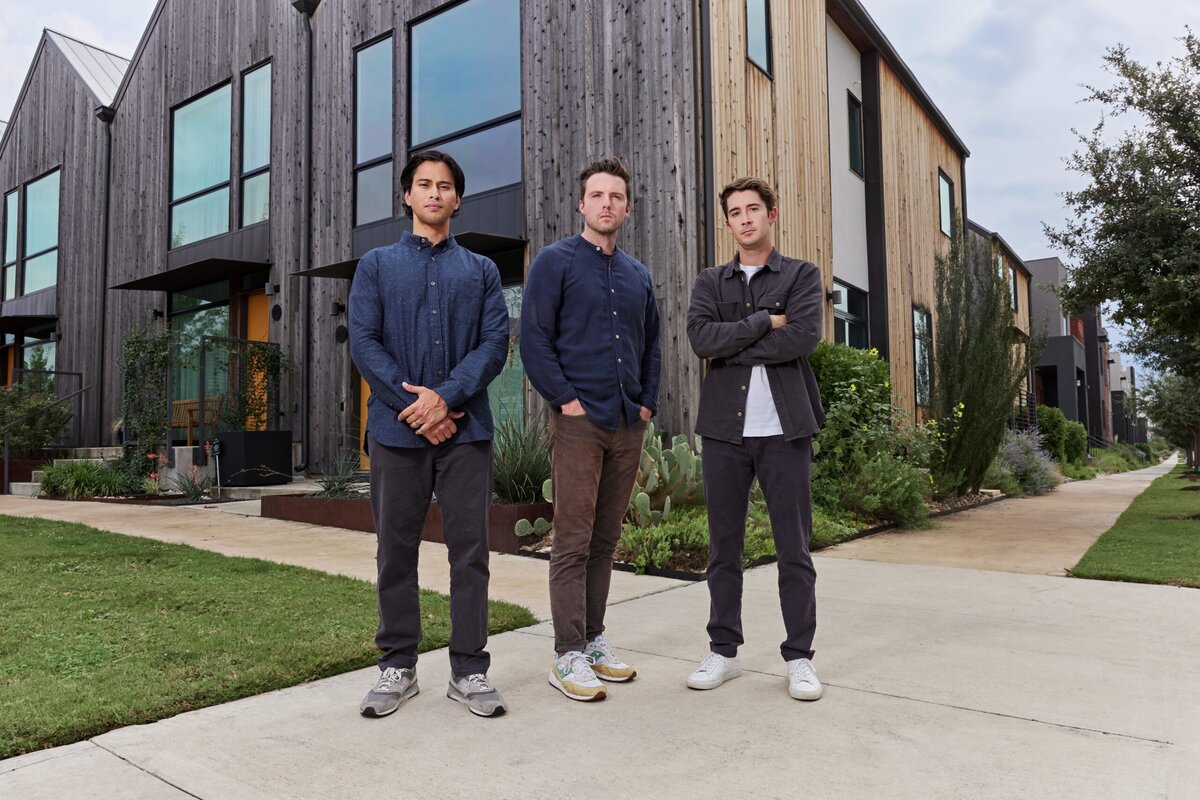
Cedar’s generative building design platform for housing and urban development receives backing from Caffeinated Capital and real estate powerhouses to help real-estate developers build denser, more affordable cities
Austin, Texas – October 31, 2023; The US housing market is short 6.5 million homes after more than a decade of under-building relative to population and demand growth. Cedar is today announcing a $3M seed funding round to take this problem head on, with software that helps real-estate developers and professionals maximize the housing potential of urban infill properties.
Cedar believes that the complexities of urban development are driving builders to construct homes ever-farther from city centers, thus contributing to the supply-demand mismatch creating a crisis of affordability today. Kyle Vansice, co-founder of Cedar added: “Not only is the US not building enough housing to support our population growth, we’re not building homes in the right places – urban centers where current and future generations want to live and work, and be closer to their friends, family, and cultural amenities.”
The funding round was led by Caffeinated Capital with participation from Tishman Speyer Ventures, Maria Davidson (CEO of celebrated construction startup Kojo), David Rubenstein via Shorewind Capital, Alumni Ventures, among others. Cedar’s cap table also includes global venture capital firm Antler as an early investor (pre-seed round)

Founded in 2022 by Kyle Vansice, Nate Peters and Rahul Attraya, Cedar is radically collapsing the time and cost for developers to source and evaluate real-estate projects, a major inefficiency in today’s real-estate market. It often takes longer to acquire, design, and permit a housing project than it does to build it – largely due to the slow, consultant driven, and regulatory burdened process of solving the 3D puzzle that is a real-estate development project. And while 80% of cities are composed of housing, almost no software exists to help developers know where and what can be built in the city – a critical market gap Cedar is filling.
The Cedar platform uses generative algorithms and a mix of public and proprietary data to quickly generate a broad array of building designs, accurately predicting the development yield on any parcel in a city, and converting complex land-development regulations into real development scenarios that maximize a property’s financial potential. Cedar is on a mission to standardize a fragmented process of value creation that typically takes months of consultant work and adds hundreds of thousands of dollars to each development project.
By challenging the fundamentals on housing design and location, Cedar is creating a pathway to help deliver the residential needs of communities across the US. “By connecting local zoning and land development regulations with a national standard for infill housing and urban density, Cedar is the first technology startup that is offering a fresh vision for housing development and design for the future,” Nate Peters, co-founder of Cedar added.

Cedar believes the immediate opportunity for builders and developers lies in places that were previously built for largely single-family development, but offer the potential to dramatically densify to create more livable and walkable neighborhoods. The future of urban development needs to move beyond the binary of either single-family homes or luxury high-rise to include the “missing middle” scale – a term coined by Dan Parolek and his firm Opticos Design.
Rahul Attraya, co-founder of Cedar added: “The smaller, non-institutional “missing middle” scale projects are critical to creating a more economically and environmentally sustainable density in our cities. They present the key to providing the breadth of affordable options cities need. But getting innovative housing built in urban areas is not easy, and builders, developers, and the design community take big risks to make them happen – Cedar is supporting this effort by providing sophisticated planning and analysis technology that reduces risk and maximizes their potential.
The infill multi-family construction is a $300B+ market annually, and is expected to nearly double by 2030. It is not only America’s fastest growing housing development type, but according to a recent University of California Berkeley study, the single most effective tool in reducing the carbon emissions of our society.
Cedar has coverage across Austin now, but has ambitious plans to expand to a number of major American cities over the next 12-18 months. Varun Gupta, Partner at Caffeinated Capital, commented: “Characterizing the economic value of any parcel of land through its current and future development opportunities will drive massive value to developers, brokers, states and municipalities, and other stakeholders. With it, Cedar could help usher in a new golden era of municipal development and help solve America’s housing shortage.”
Tyler Norwood, General Partner US at Antler, Cedar’s initial investor remarked: “We backed the Cedar team from day zero. As an early investor, we worked with Kyle, Rahul, and Nate as they experimented and fought to crack open a wedge into this market. The Cedar team is ambitious and tenacious, exactly the qualities required to scale a mammoth proptech opportunity. This 0-1 stage of a company is such a hard but exhilarating time — I feel honored that a team this strong gave Antler the opportunity to be a partner on this journey and it is exciting to see Cedar quickly gaining traction. I look forward to continue supporting the team as they build the future of urban infill development starting in our own backyard, Austin, TX. “

